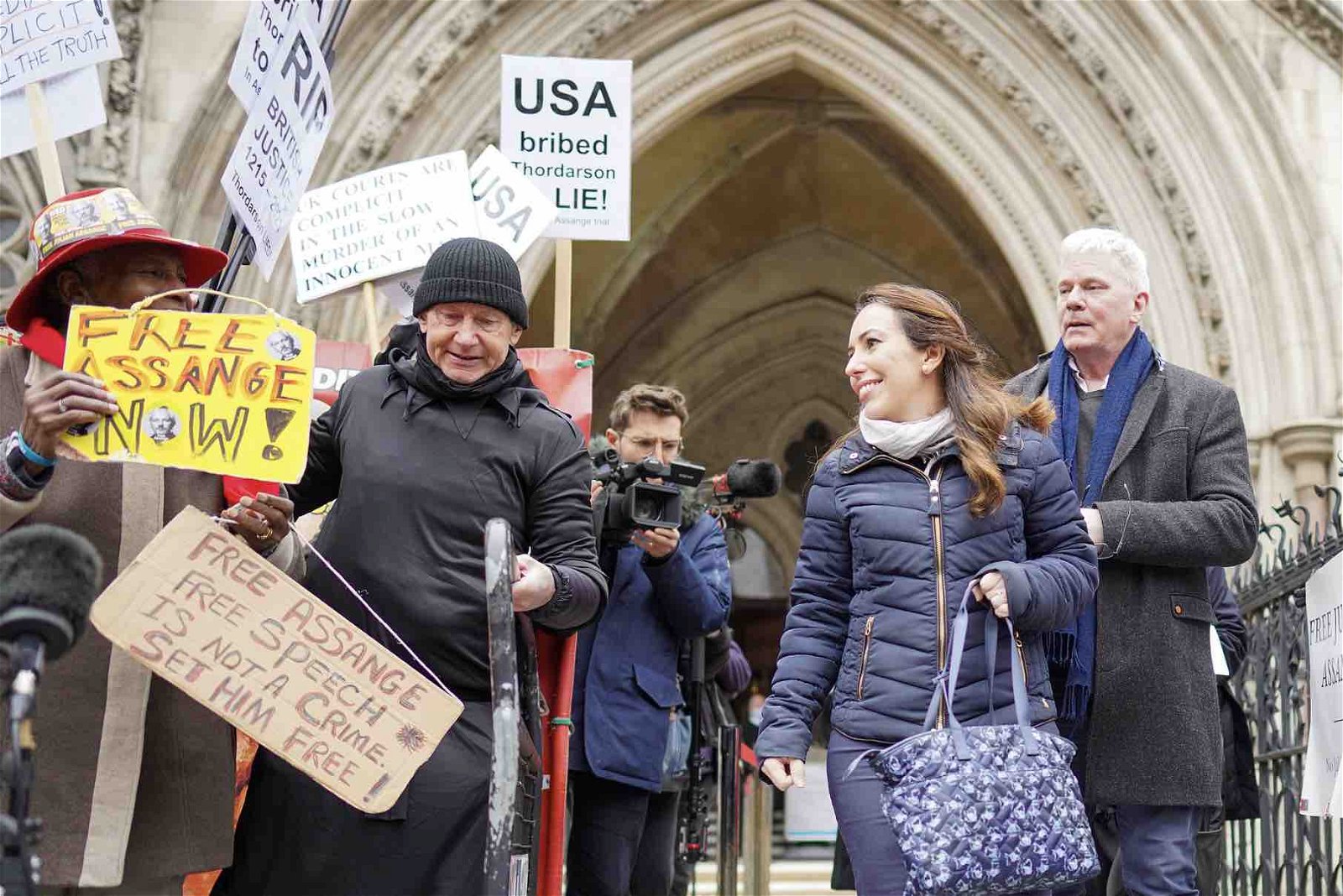

Welcome to this week’s Intelligence Brief… this week, after more than a decade spent collectively in exile and imprisonment amid ongoing legal battles, Julian Assange, the famous founder of Wikileaks, returned to Australia a free man. In our analysis, we’ll be looking at 1) the deal that brought Assange back to his home in Australia after possibly facing extradition and imprisonment in the U.S., 2) why Assange remains such a polarizing figure in the digital age, 3) the beleaguered Wikileaks founder’s exile and 4) the precedents, and concerns, that arise from his ordeal and the new deal he reached with the U.S. State Department.
Quote of the Week
“Reality is an aspect of property. It must be seized. And investigative journalism is the noble art of seizing reality back from the powerful.”
– Julian Assange
Latest News: In recent articles at The Debrief, new research reveals that LSD microdosing can significantly enhance sleep quality, and DARPA has revealed the official designation of a next-generation X-plane. You’ll find links to all of our recent stories can be found at the end of this week’s newsletter.
Podcasts: In podcasts this week, on The Debrief Weekly Report, Stephanie and Kenna discuss NASA’s plan to build an artificial star for astronomical measurements, and explore a lost Greek temple mentioned in ancient graffiti. Over on The Micah Hanks Program this week, I look at ongoing reports of “mystery submarines” and other unidentified submersible phenomena. You can subscribe to all The Debrief’s podcasts on our Podcasts Page.
Video News: This week on Rebelliously Curious, Chrissy Newton is joined by John Priestland and Dr. Daniel Stubbings of the UK-based uNHIdden initiative. Be sure to check out other great content from The Debrief on our official YouTube Channel.
With that all behind us, it’s time to examine what transpired this week between the U.S. State Department and Wikileaks founder Julian Assange and what it means for transparency advocacy and journalism in the modern era.
Julian Assange Achieves Freedom in Plea Deal With the U.S.
This week, Julian Assange, one of the most controversial figures of the Internet Age, returned to Australia a free man following a five-year stint in a British prison amid an attempt to have him extradited to the United States for acquiring and publishing sensitive classified U.S. government information.


His imprisonment followed seven years the Wikileaks founder famously spent in the Ecuadorian embassy in London. Assange, now 52 years old, was released following a deal with U.S. Justice Department prosecutors that ended the possibility that he could spend the rest of his life in a U.S. prison. In accordance with the deal, Assange pleaded guilty to a single felony charge for publishing U.S. military secrets and hopes to eventually be pardoned by the current or an incoming future U.S. president.
Assange’s disclosures, which include the release of confidential diplomatic cables to information about civilian casualties in Afghanistan and Iraq—as well as the names of U.S. operatives that remained unredacted—resulted in divided opinions and fierce debate over the ethics of Assange’s brand of radical transparency. Assange’s efforts, as well as his recent plea deal with the U.S., also push the boundaries on what 21st-century journalism is and what its limits should be.
A Polarizing Advocate for Transparency
Depending on who one asks, Assange may be seen as a hero in the battle for government transparency, or a reckless activist who is a huge problem for the national security of not only the U.S., but also other nations around the world.
Since establishing WikiLeaks, Assange has used the Internet to solicit and publish sensitive government information, drawing on his skills as a hacker dating back to his teenage years. WikiLeaks and its controversial revelations helped earn Assange both fervent supporters, as well as myriad harsh critics.
Still, few would question whether WikiLeaks helped expose several significant issues through the organization’s efforts, collaborating at times with traditional media outlets to expose abuses, excesses, and human rights violations that otherwise would likely have gone unnoticed. However, Wikileaks also stoked the fires of controversy with the unredacted release of names of U.S. military operatives, an issue that remains a sore spot for American officials.
“The actions for which [Assange] was indicted and for which he has now plead guilty are actions that put the lives of our partners, our allies, and our diplomats at risk,” said U.S. State Department official Matthew Miller in a statement following Assange’s release earlier this week.
“Especially those who work in dangerous places like Afghanistan and Iraq. This was some years ago now—almost fifteen years ago—so I think the world has forgotten much of it, but if you recall, when Wikileaks first disseminated and published State Department documents [and] State Department cables, they did so without redacting names,” Miller said. “They just threw them out there for the world to see.”
“The documents they published gave identifying information of individuals who were in contact with the State Department. That included opposition leaders [and] human rights activists around the world whose positions were put in some danger because of their public disclosure.”
Miller added that Wikileaks disclosures also impeded the U.S.’s ability to communicate and coordinate with the leadership of other nations, also citing Wikileaks’ release of emails associated with the presidential campaign of Hillary Clinton in 2016, which he said “essentially served as a conduit for Russian intelligence interfering in a U.S. presidential election.”
Assange in Exile
Assange’s many years spent in exile saw him undergo a public transformation from a crusader for truth and transparency to an activist hiding in plain sight after a violation of bail terms and charges of sexual assault in Sweden fueled the controversies surrounding him.
Seeking asylum in the Ecuadorian embassy in London for seven years, Assange maintained a secret relationship with Stella Moris, a lawyer who later became his wife, prior to his eventual eviction from the embassy in April 2019 following a shift in Ecuador’s governance.
Assange was arrested following his eviction by British authorities, and imprisoned in HM Prison Belmarsh, a high-security prison in south London famous for its harsh conditions. Assange’s health, already in decline from his years confined mostly to a single room and occasional public appearances on its balcony, only worsened. Upon his release this week, Assange refrained from making any public statement himself, instead appearing briefly during an emotional reunion embrace with his wife, who spoke on his behalf at a press conference on Thursday.


“Julian plans to swim in the ocean every day,” Stella Assange said. “He plans to sleep in a real bed. He plans to taste real food, and he plans to enjoy his freedom.”
Concerning Precedents
Although Assange’s plea deal may signal the end of his years of legal battles, many have expressed that it also raises questions about issues concerning press freedom and the treatment of whistle-blowers.
As of Thursday morning, the Wikileaks website had not posted any updates or official statements following Assange’s release, and it remains unclear what may become of the organization and its efforts, which have largely remained inactive since 2023. In accordance with Assange’s plea deal, the organization is required to destroy any unpublished documents it currently possesses.
For now, the current chapter in Julian Assange’s ordeal appears to have reached a conclusion, having brought him from being a once-revolutionary figure in the fight for government transparency, to a contentious public figure and symbol of free speech and press freedoms. Ultimately, Assange’s story only showcases the increasingly complex interplay between transparency, security, and the people’s right to know in a time in history where the rapid spread of information through technology—and the ease of access to it—are constantly redefining how we manage and report information.
That concludes this week’s installment of The Intelligence Brief. You can read past editions of The Intelligence Brief at our website, or if you found this installment online, don’t forget to subscribe and get future email editions from us here. Also, if you have a tip or other information you’d like to send along directly to me, you can email me at micah [@] thedebrief [dot] org, or Tweet at me @MicahHanks.


Here are the top stories we’re covering right now…
- Beneath Antarctica’s Ice Sheets, Scientists Have Just Made a Wet and Worrying Discovery
Researchers in Antarctica report a concerning new discovery involving ice melting on Earth’s southernmost continent.
- A New Low-Noise Laser System Could Further Advance LiDAR Technology
Scientists have developed a smaller and quieter laser that could potentially advance LiDAR capabilities and other technologies.
- Was Pi Just Hacked? String Theory Scientists ‘Stumble Upon’ Whole New Way to Represent Famously Irrational Number
String Theory scientists say they have “hacked” Pi, resulting in a whole new way to represent the famously irrational number.
- Forget Counting Sheep, Try LSD: Microdosing Study Shows Significant Improvement in Sleep Quality
New research reveals that LSD microdosing can significantly enhance sleep quality, promoting earlier bedtimes and longer sleep durations.
- DARPA Teases Newest ‘X-Plane’ Images as Mysterious Hybrid Electric Propulsion Craft Gets Official Designation
DARPA has revealed the official designation of a next-generation X-plane it currently has under development.
- These 500 Million-Year-Old Fossils May Hold The Secrets of Ancient Life on Earth, But There’s a Problem
Researchers are turning to AI for help categorizing ancient fossils called palynomorphs that hold the secrets to Earth’s ancient past.
- Twinkle Twinkle Artificial Star This week on The Debrief Weekly Report…
In this week’s episode of the DWR, Stephanie and Kenna discuss NASA’s plan to build an artificial star for astronomical measurements. They also explore a lost Greek temple mentioned in ancient graffiti, and a new black hole discovery using magnetic winds to feed.
- CERN Experiment Reveals “Spooky Action at a Distance” Persists Between Top Quarks
Quantum entanglement in top quarks has been demonstrated, according to the results of a groundbreaking experiment by physicists at CERN.
- 2,000-Year-Old Wine Unearthed in Ancient Tomb Sheds Light on Mysterious Roman Burial Rituals
World’s oldest wine discovered in a 2,000-year-old Roman tomb in Carmona, Spain, revealing Rome’s funerary practices and wine culture.
- Quantum Simulations Reveal New Insights into Behavior of Neutrinos Fueling Supernovas
New research is revealing key insights into the role mysterious neutrinos play in fueling supernovae.
- Adding This Supplement To Your Coffee or Caffeine Significantly Boosts Brain Power, Finds New Research
The combo of creatine nitrate and caffeine enhances cognitive function according to a new study from Jacksonville State University.
- James Webb Space Telescope Captures Images of Rare Phenomenon Long Anticipated by Astronomers
NASA’s James Webb Space Telescope has captured striking new images of the Serpens Nebula, revealing a rare alignment of stellar jets that offers new insights into how stars form.
- Rolls-Royce Unveils New ‘Stealth Mode’ Hybrid Propulsion for Next-Gen Armored Vehicles
Rolls-Royce unveils a new hybrid propulsion system aimed at enhancing stealth and efficiency of armored vehicles.
- Is Your Brain Data Safe? Recent Lawsuit Examines Rights to Brain Privacy
Chile’s Supreme Court has issued the first lawsuit over privacy rights involving brain activity.
- Videos Reveal This Bloodsucking Parasite Doing Something Odd That Settles a Century-Old Debate
Videos reveal a surprising new behavior in a species of leech that settles more than a century of debate among scientists.
- Department of Energy Scientists Achieve Fusion Milestone with Promising New Plasma Escape Mechanism
In a fusion energy milestone, researchers have revealed new ways of improving reactor efficiency and longevity while reducing the potential for damage.
- Newly Discovered “Magnetic Winds” Are Feeding Supermassive Black Holes, Making Them Grow
Astronomers have discovered powerful magnetic winds fueling a distant supermassive black hole to grow larger.
- NASA Plans to Put an Artificial Star in Orbit. Here’s Why.
NASA plans to deploy an artificial “star” into orbit in a forthcoming space mission to enhance astronomical measurements.
- NASA Restores Communication to Voyager Spacecraft in Seemingly Impossible Feat
This week, NASA has achieved the seemingly impossible by restoring full communication to its iconic Voyager I spacecraft.
- MIT Geologists Say Liquid Lakes on Saturn’s Moon Titan Probably Experience Waves Similar to Earth’s Lakes
Models developed by MIT geologists indicate that the coastlines of the lakes on Saturn’s moon Titan were likely formed by waves.
- 2,500-Year-Old Graffiti Points to Existence of a Lost Ancient Greek Temple
Researchers have uncovered unique graffiti that may indicate there once stood a massive Greek temple since been lost to history.
- Emergency in Orbit
This week on The Micah Hanks Program, we look at several of the most alarming incidents that have occurred in the history of spaceflight, as well as occasional encounters with unidentified objects reported by astronauts during orbital operations.
- Mental Health and the UAP Experience
This week, Chrissy Newton is joined by John Priestland, Founder and Chairman of uNHIdden, along with Dr. Daniel Stubbings, Clinical Psychologist and part of the uNHIdden Medical Advisory Board.
- Biomolecular Engineers Create Entirely New Class of Materials with Unique Properties Called ‘Glassy Gels’
NC State researchers say they have created an entirely new class of material called ‘glassy gels’ with several unique properties.
